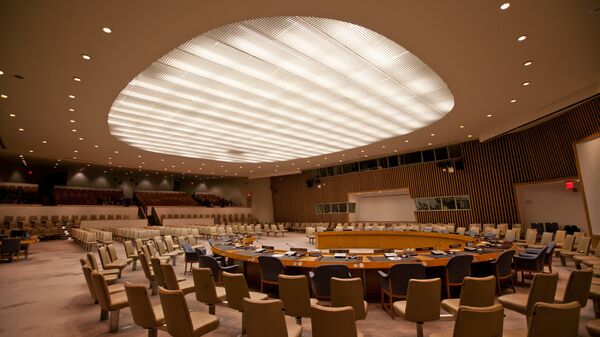"The UNSC will discuss the Jammu and Kashmir situation behind closed doors most likely on 16 August," the UNSC chief said.
On 13 August, Pakistan wrote to the UNSC President Joanna Wronecka, asking for a meeting. However, it was told that the issue should be tackled bilaterally.
Strongly objecting to India's move, Pakistan appealed to the UN and the UN Security Council (UNSC), and foreign powers, notably, China, Turkey and Malaysia, to support its position.
The Security Council later agreed on an informal meeting on Kashmir by request of UNSC permanent member China. This UNSC meeting on Kashmir will be held for the first time since 1965.
India and Pakistan last took up the Kashmir issue for discussion in the UN General Assembly (UNGA) session of 1971.
India informed the international community that scrapping Article 370 of the Indian Constitution is New Delhi's internal matter and Islamabad has to accept it as reality.
On 5 August, India announced its decision to amend Article 370 and 35A of the Constitution, repealing the special status, and splitting the territory into two federally administered enclaves - Jammu and Kashmir and Ladakh.
The government imposed prohibitory orders, cut off internet and mobile communications and closed schools and educational institutions. Educational institutions have since reopened, and curfews have been relaxed on a selective basis. On Friday, the Indian government told the Supreme Court that the restrictions would be lifted in "several few days."
So far, the US has been neutral about India's move on Kashmir, while Russia has supported New Delhi's position. Both are UNSC members with veto powers.
Kashmir has been a bone of contention between India and Pakistan since the countries gained freedom from British colonial rule in 1947. Both states govern part of the region but have claims to it in its entirety. The rivals have also fought two wars over Kashmir.


